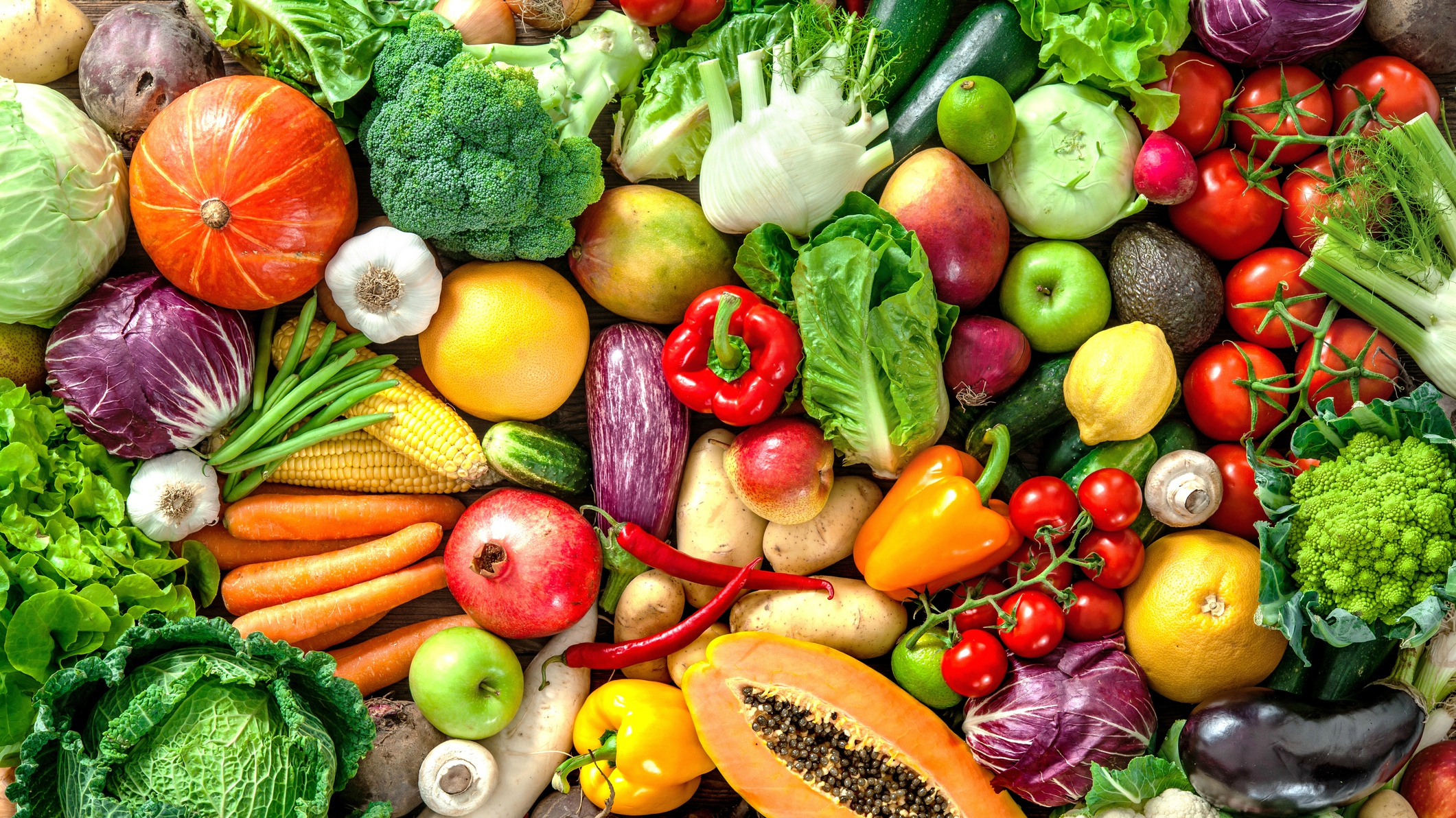Exploring The World Of Vegetables: Health Benefits, Varieties, And Culinary Uses
Vegetables are an essential part of a healthy diet and are known for their numerous health benefits. They are rich in vitamins, minerals, and fiber, making them a crucial component for maintaining overall health. In today's fast-paced world, understanding the importance of vegetables not only enhances our dietary choices but also contributes to a sustainable lifestyle. In this article, we will explore various aspects of vegetables, including their health benefits, types, and culinary uses, providing you with comprehensive knowledge to incorporate more plant-based foods into your diet.
As we dive into the vibrant world of vegetables, we aim to highlight their significance in nutrition and their role in preventing chronic diseases. Whether you're a seasoned chef or a beginner in the kitchen, understanding how to select, store, and prepare vegetables can elevate your meals and improve your health. Additionally, we will look at some of the most popular vegetables around the globe and their unique nutritional profiles.
By the end of this article, you will not only appreciate the diversity of vegetables but also be equipped with practical tips to enhance your cooking and eating habits. Let's embark on this journey to discover the wonders of vegetables!
- Xqc Twitter Unveiling The Journey Of A Streaming Sensation
- Ken Curtis The Legacy Of A Twin Brother In Hollywood
Table of Contents
- Health Benefits of Vegetables
- Varieties of Vegetables
- Culinary Uses of Vegetables
- Selecting and Storing Vegetables
- Sustainable Eating Practices
- Nutritional Facts of Popular Vegetables
- Cooking Tips for Vegetables
- Conclusion
Health Benefits of Vegetables
Vegetables provide a plethora of health benefits that contribute to overall well-being. Here are some key advantages:
- Rich in Nutrients: Vegetables are packed with essential vitamins and minerals such as vitamin A, C, K, potassium, and folate.
- High in Fiber: Most vegetables are high in dietary fiber, which aids digestion and helps maintain a healthy weight.
- Low in Calories: They are generally low in calories, making them an excellent choice for those looking to manage their weight.
- Antioxidant Properties: Many vegetables are rich in antioxidants that help combat oxidative stress and reduce the risk of chronic diseases.
- Support Heart Health: Regular consumption of vegetables is linked to lower blood pressure and cholesterol levels, promoting cardiovascular health.
Varieties of Vegetables
Vegetables come in various shapes, sizes, and flavors. Understanding these different types can help you diversify your diet. Here are some major categories:
Leafy Greens
- Spinach: Rich in iron and vitamins.
- Kale: A nutrient-dense superfood.
- Swiss Chard: High in vitamins K, A, and C.
Root Vegetables
- Carrots: High in beta-carotene and good for vision.
- Beets: Known for their antioxidant properties.
- Potatoes: A versatile staple in many diets.
Fruit Vegetables
- Tomatoes: Rich in lycopene, great for heart health.
- Bell Peppers: High in vitamin C and antioxidants.
- Eggplants: Low in calories and rich in fiber.
Culinary Uses of Vegetables
Vegetables can be prepared in countless ways, enhancing both flavor and nutrition in meals. Here are some popular methods:
- Raw: Adding fresh vegetables to salads or as snacks.
- Steamed: A healthy cooking method that preserves nutrients.
- Roasted: Enhances flavors through caramelization.
- Stir-fried: Quick cooking method that retains crunch and color.
Selecting and Storing Vegetables
Proper selection and storage of vegetables are crucial for maintaining their freshness and nutritional value. Here are some tips:
- Choose vibrant-colored vegetables, as they often indicate high nutrient content.
- Store leafy greens in a damp paper towel in the refrigerator to maintain freshness.
- Keep root vegetables in a cool, dark place to extend shelf life.
Sustainable Eating Practices
Incorporating more vegetables into your diet not only benefits personal health but also promotes sustainable eating practices:
- Opt for locally sourced vegetables to reduce carbon footprint.
- Consider growing your own vegetables at home to ensure freshness.
- Practice seasonal eating by choosing vegetables that are in season.
Nutritional Facts of Popular Vegetables
| Vegetable | Nutritional Value (per 100g) |
|---|---|
| Spinach | 23 calories, 2.9g protein, 3.6g carbohydrates, 0.4g fat |
| Carrots | 41 calories, 0.9g protein, 9.6g carbohydrates, 0.2g fat |
| Tomatoes | 18 calories, 0.9g protein, 3.9g carbohydrates, 0.2g fat |
Cooking Tips for Vegetables
Here are some tips to enhance your cooking techniques for vegetables:
- Use herbs and spices to elevate the flavor of vegetables.
- Don't overcook vegetables; aim for a tender-crisp texture.
- Incorporate a variety of cooking methods to keep meals interesting.
Conclusion
In summary, vegetables are a vital part of a balanced diet, offering numerous health benefits and culinary versatility. By understanding the different types of vegetables, their nutritional values, and cooking methods, you can enhance your meals and promote better health. We encourage you to explore new vegetables, experiment with recipes, and incorporate more plant-based foods into your daily routine. If you found this article helpful, please leave a comment below, share it with your friends, or check out our other articles for more insights!
Thank you for reading! We hope you return for more informative articles on healthy living and nutrition.
- Cheryl Miller Kids A Deep Dive Into The Life Of A Basketball Legend And Her Family
- Exploring The Musical Journey Of Jimmy Page And The Influence Of Piddy Come With Me

Veggies That Are Healthier Cooked

Should We All Be Vegan? SiOWfa15 Science in Our World Certainty and

Salad and Energy Vege Box (1kg) Revoganix